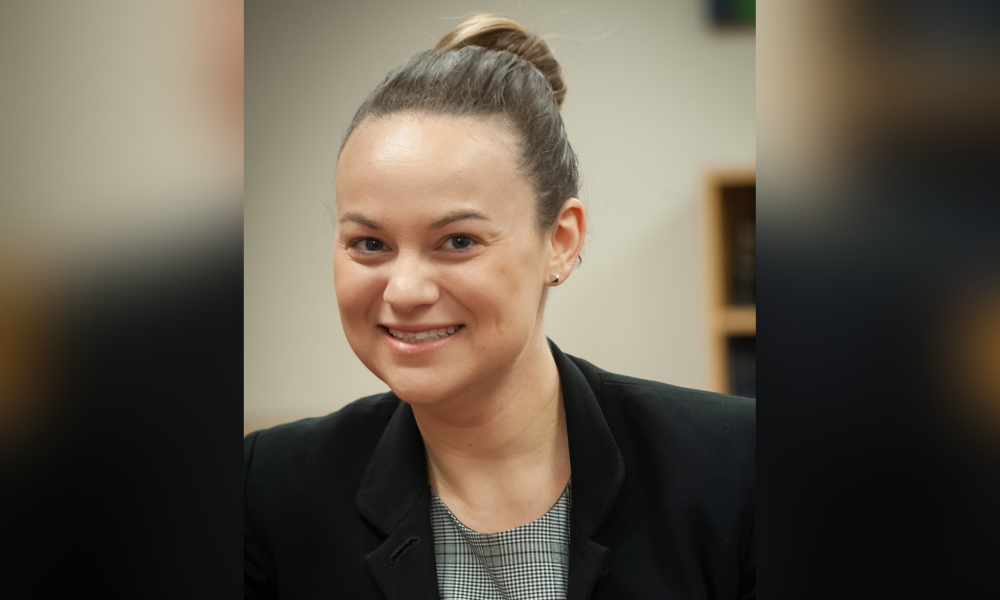
Aimee Dartnall talks working with peak bodies and public interest clients

A story Aimee Dartnall believes will stay with her for a long time is one that comes from a particularly memorable case she tackled in which a retired pilot talked about playing beer can hockey with friends on D’Urville Island as he gave evidence to defend the continued existence of an old airstrip at Awaroa.
Her long-time love of stories was what brought this Franks Ogilvie senior solicitor into law. While she didn’t begin practising right away, a stint a secretary with the Wellington City Council quickly confirmed to Dartnall that she wasn’t content to sit on the sidelines.
In this July interview, Dartnall talks working at “a firm that operates at the intersection between law and politics,” learning about the anatomy of a bullet and tackling cases that get a lot of media attention.
What made you choose a career in law, and what's your favourite part of the job?
I always loved stories – they’re the perfect combination of reading, writing and making words work. So law was a natural choice for me. That said, I didn’t know if I wanted to practise right out of university. I got a job as the Secretary to District Licensing Committees (the alcohol licensing body) at Wellington City Council, but quickly realised that I wanted to be arguing the cases, not taking notes.
Arguing cases in court is fun, but my favourite part of the job is learning about different subjects and areas of life that I never would have encountered outside my job, like managing the Himalayan tahr population in the Southern Alps, the anatomy of a bullet, and how our electricity industry works.
What is the most memorable case you've taken on/been involved in?
We represented a group of landowners to argue that a 50-something year old airstrip at Awaroa should remain open. A number of retired pilots gave evidence and one told stories of flying to D’Urville Island with his friends for the afternoon in a group of planes to play beer can hockey, then fly back home for the evening. I’ll remember that story long after I’ve forgotten the details of the case.
What is going on at the firm? Are there any new programs and initiatives that you’re particularly interested in?
The great thing about working at a firm that operates at the intersection between law and politics is that there’s always something interesting going on. One of the main things I’m working on is an appeal on the proper interpretation of the legal tests for overlapping claims for customary marine title under the Marine and Coastal Area (Takutai Moana) Act. This is an untested area of law in New Zealand and I’m excited to be a part of developing it.
What has been your proudest accomplishment in the last year or so, and what advice can you give fellow lawyers about it?
Working for peak bodies and public interest clients means a lot of people have an interest in the cases we work on, and these cases often attract media attention. It’s always very humbling to realise that my work helps peoples’ voices be heard, both in court and in public. And really, that’s what being a lawyer is all about. It’s our job to advocate for our clients. I think advocacy out of court often doesn’t get as much attention as it should, even though it’s a key part to our clients’ success.
What should the profession and law firms focus more on?
Litigation is often very backward-looking. The main focus is usually on things that have already happened. Even judicial review is focused on decisions that have already been made, and sometimes we forget that the main focus for the client is on what will happen next. I think we do our clients a disservice if we don’t help them harness wins in court to set up for success in future.
What are the challenges you expect in your practice, and in the business of law in general, going forward? What challenges are particularly pressing in the country’s legal industry?
Going to court is expensive. Many of our clients are special interest or peak body groups that rely on donations to take their case to court, often without hope or expectation of full cost recovery if they win. If they lose, they are often faced with a big bill to pay the other side’s scale costs.
Unlike other common law countries, New Zealand doesn’t have well-developed litigation funding or protective costs measures to help public interest cases get to court. This is a gap in our access to justice regime.
What are you looking forward to the most in the coming year?
More interesting clients with interesting causes that want us to help them shape the law. I don’t know who these clients will be yet – but I’m looking forward to the new challenges and opportunities they will bring.